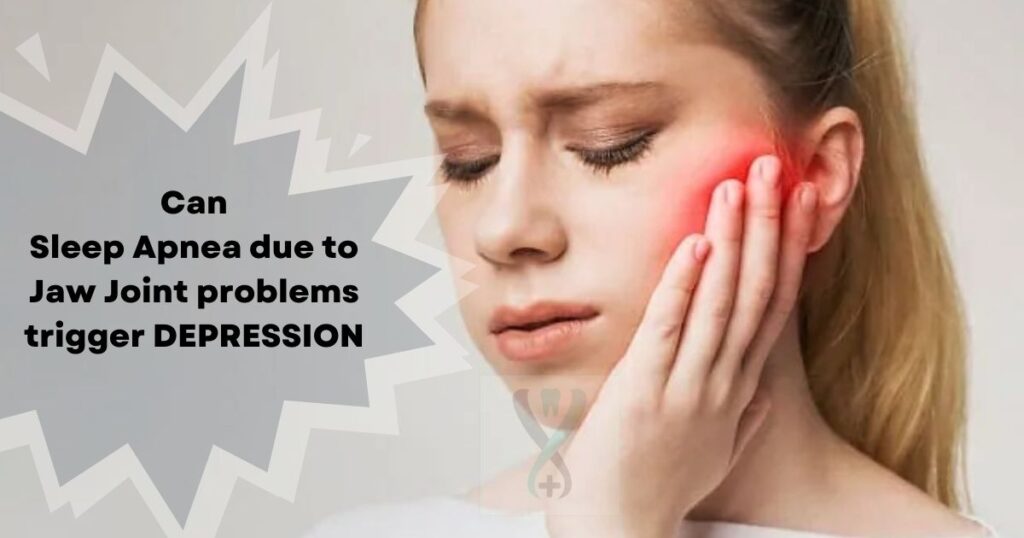Sleep apnea is a common sleep disorder that can happen due to many reasons and problem in the jaw joint is one of the reasons. Patients with Sleep Apnea problems have a condition called hypopnea where breathing decreases during sleep. In other words, breathing gets paused for a brief time while the person is asleep. Prolonged and untreated sleep apnea can cause depression. Let us understand the reasons in detail.
In our previous blog, we have seen how TMJ or jaw joint problems and sleep apnea are related. Click here to read the blog.
The presence of Tempero Mandibular Disorder or TMD (jaw joint problem) can worsen the sleep apnea already present and can affect your general health. Any malocclusion condition (misalignment of the jaw) present forces the airway route from staying open when you are asleep. This is how the airway route and your jaw are closely associated. This gives a fair idea of how sleep apnea and TMJ (jaw joint problem) are closely related to one another.
What happens during Sleep Apnea?
When a person suffers from sleep apnea for whatever reasons, whenever the breathing activity is not taking place, a panic signal is received by the brain of the sleep apnea patient. This panic signal causes a jerk and awakens the body to resume breathing. This interval sleeping becomes a norm in due course as sleep apnea takes root. The sleep pattern is actually broken.
Consequences of Sleep Apnea
Pause In Sleep – Pauses in sleep that have become a routine make a person irritable, anxious, and depressed. It has been found that people with obstructive sleep apnea have a higher risk of falling into depression.
Carbon Dioxide Buildup – For people with obstructive sleep apnea, receive less oxygen and retain more carbon dioxide in their respiratory system. This results in increased carbon dioxide buildup making the blood acidic. This factor also contributes to making the person feel sleepy and tired the whole day.
Excruciating Headaches – People with sleep apnea problems also suffer from excruciating headaches. Even painkillers are unable to help them in certain severe cases. Only sound sleep can bring relief to them, but associated sleep apnea issues make it difficult. It happens because the levels of oxygen in the blood drop because of intermittent breathing. Air gets trapped in the lungs, thereby increasing carbon dioxide waste in the body.
How Is Sleep Apnea Related to Depression?
People with sleep apnea tend to feel sleepy in the daytime too because they have not caught up with enough sleep during the night. This brings about a host of other mood disorders. Generally, mood swings can make the person restless and not catch up with what is happening around them. This can pass on a sense of being left out. Any such prolonged emotion can build up only to cause problems like panic attacks, anxiety, stress, etc. If the root cause of the sleep apnea is not found and treated the anxiety and stress can slowly transform into a full-fledged depression in extreme cases.
